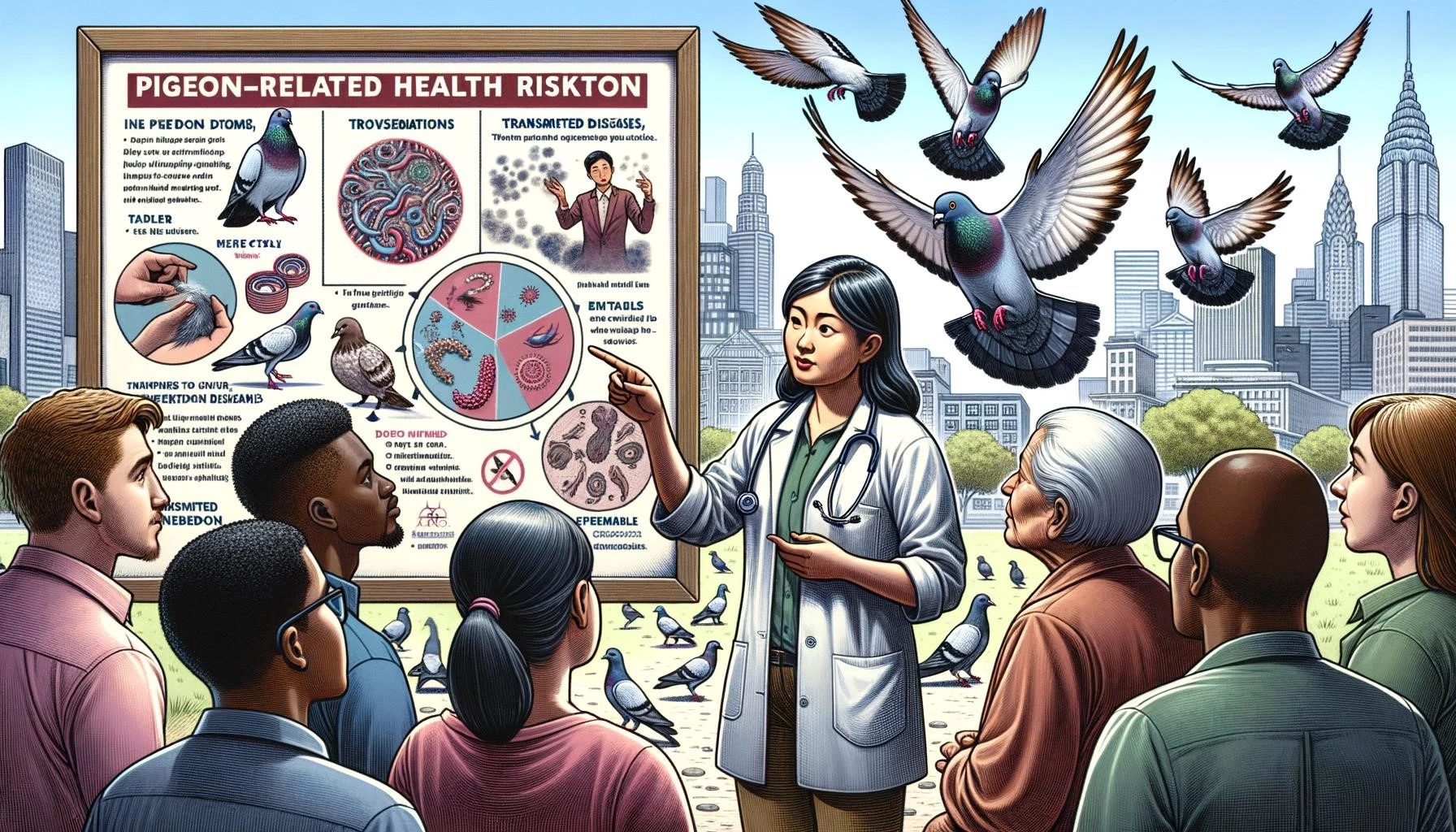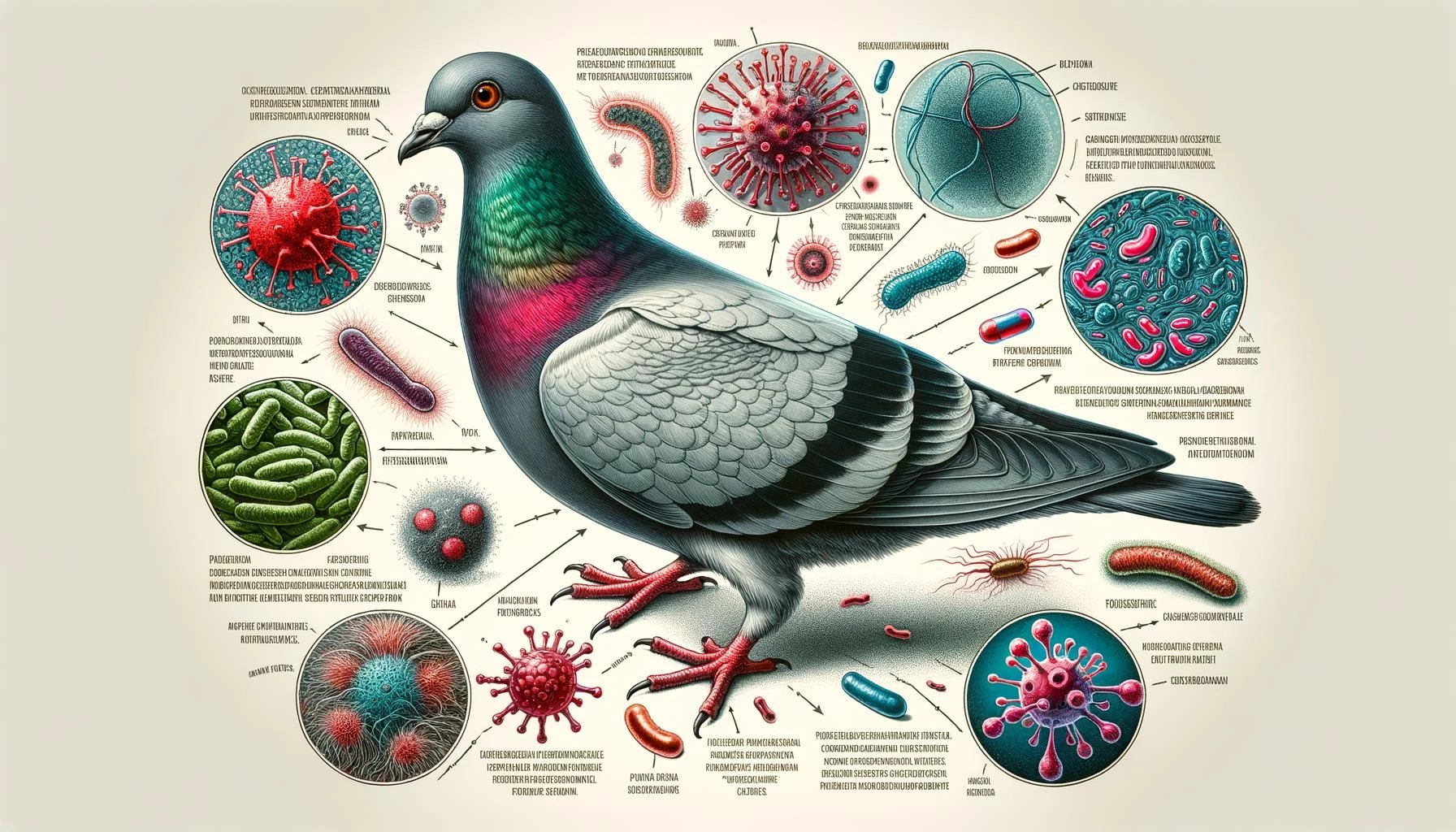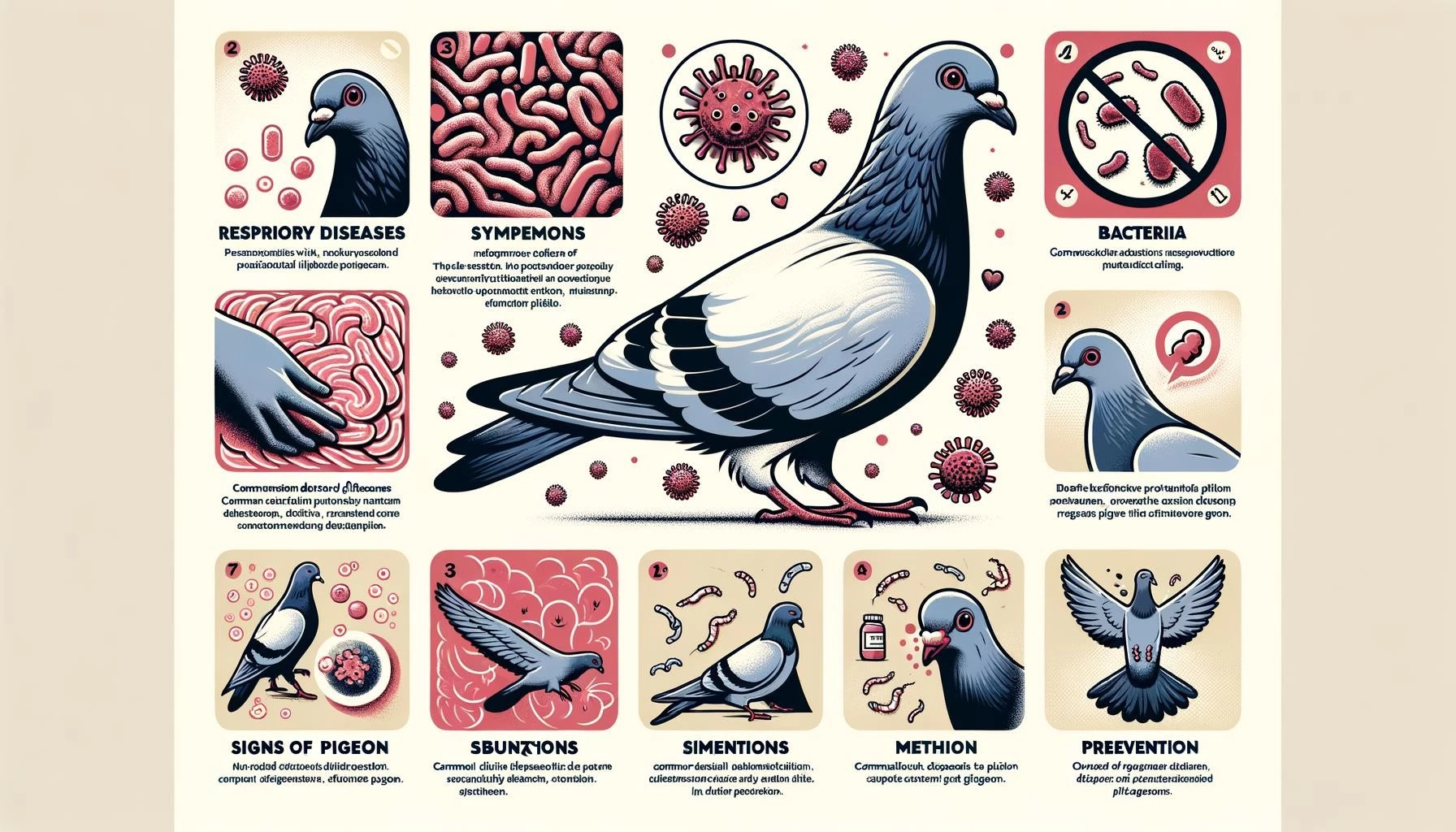Pigeons are beautiful birds that have a long history of coexisting with humans. However, these birds can also be carriers of various diseases and pose health risks if proper precautions are not taken. In this article, we will explore the importance of pigeon health prevention and the measures that can be taken to mitigate the potential health risks associated with pigeons.
Key Takeaways
- Pigeon droppings can contain bacteria, fungal agents, and ectoparasites that pose health risks to humans.
- Common health problems associated with pigeons include paratyphoid, paramyxovirus, canker, worms, and ornithosis.
- Preventive measures include maintaining clean and hygienic environments, controlling mosquito populations, and vaccination.
- Pigeons droppings do not present a significant health risk when proper hygiene practices are followed.
- Habitat modification and proper housing are essential in preventing pigeon-related health issues.
Types of Health Risks Associated with Pigeons
Pigeons can carry various pathogens and diseases that can pose health risks to humans. These risks include:
- Paratyphoid (Salmonella): It is caused by unsanitary conditions and the contamination of feed by rodents. It can also occur when introducing new pigeons into the loft without checking their health status.
- Paramyxovirus: A viral infection that can affect the respiratory and nervous systems of pigeons. It can be transmitted to humans through close contact with infected birds or their secretions.
- Canker: A fungal infection that affects the respiratory and digestive systems of pigeons. It can cause coughing, diarrhea, weight loss, and eye discharge.
- Worms: Pigeons can harbor various types of worms, including roundworms, tapeworms, and flukes. These parasites can cause digestive issues and impact the overall health of the birds.
- Ornithosis: A bacterial infection caused by Chlamydia psittaci. It can be transmitted to humans through close contact with infected birds or their droppings. Symptoms include respiratory problems, fever, and flu-like symptoms.
These are just a few examples of the health risks associated with pigeons. It is essential to take appropriate measures to prevent the spread of these diseases and protect both pigeons and humans from potential harm.
Prevention Measures for Pigeon-Related Health Risks
Preventing health risks associated with pigeons involves implementing several measures to safeguard both human and bird health. Here are some effective prevention strategies:
1. Maintain a Clean and Hygienic Environment
Regularly clean feeding areas and remove any droppings or debris that may harbor pathogens. This will help minimize the risk of disease transmission. Cleaning should be done using appropriate protective equipment, such as gloves and masks, to avoid direct contact with the droppings.
2. Control Mosquito Populations
Mosquitoes are known to transmit diseases, including avian pox, which can affect pigeons. Implement measures to reduce mosquito populations, such as removing standing water sources and using mosquito repellents or insecticides.
3. Vaccination
Vaccination is an essential part of pigeon disease prevention. Consult with a veterinarian or avian expert to determine the appropriate vaccines for your pigeons. Vaccinations can help protect against common diseases and reduce the risk of transmission to humans.
4. Practice Good Hygiene
Simple hygiene practices, such as washing hands thoroughly after handling pigeons, can help minimize the risk of disease transmission. Avoid touching your face or mouth before washing your hands to prevent the ingestion of any potential pathogens.
5. Habitat Modification
Modifying the habitat to make it less attractive to pigeons can be an effective prevention measure. This can involve blocking access to indoor roosts and nesting areas, using wire mesh or netting to block openings, and changing ledge angles to discourage roosting.
6. Proper Housing
Providing pigeons with appropriate housing is crucial for their health and well-being. A spacious and well-ventilated cage or coop should be provided, along with perches, nesting boxes, and baths. Regular cleaning of their housing is also essential in preventing the spread of diseases.
By implementing these prevention measures, pigeon owners can help protect the health of their birds and reduce the risk of disease transmission to both pigeons and humans. It is important to stay informed about the latest research and expert recommendations regarding pigeon health prevention.









